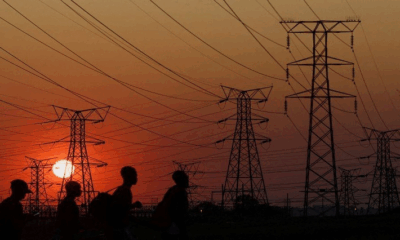Business
Eskom Turns to Foreign Utilities as Skilled Worker Shortage Cripples Power Plants

South Africa’s power utility, Eskom, is in urgent need of help running its coal-fired power plants — and it’s looking beyond the country’s borders to find it.
Eskom director Clive le Roux revealed in a parliamentary hearing on 14 May 2025 that the utility is struggling with deteriorating plant reliability due to a severe shortage of experienced staff. This crisis has forced Eskom to seek assistance from foreign utilities that have a proven track record in operating coal plants.
“We don’t have sufficient experience at the moment in the power plants,” Le Roux admitted, adding that previous efforts to bring in engineering companies through open bidding were unsuccessful. This time, Eskom plans to approach proven operators directly on a relational basis — a move that underscores the urgency of the situation.
Worsening Trend Despite Previous Gains
Eskom had shown signs of improvement in early 2024, even halting load-shedding by April. But by November 2024, that trend began to flatten. Between January and May 2025, load-shedding returned multiple times, mainly due to delayed and failed recoveries of power generation units.
From January to March 2025, Eskom’s power plants experienced a negative reliability trend. The inability to return units to service on time — and the breakdown of those that did return — resulted in five rounds of load-shedding in just four months.
In May 2025 alone, the delayed return of 3,120 MW and a further loss of 1,385 MW due to unplanned breakdowns forced Eskom to cut power once again.
The Root of the Problem: A Loss of Experience
The deterioration in Eskom’s operations is not new — and neither is the warning. For over a decade, experts have cautioned against the utility’s loss of skilled personnel, attributing it largely to aggressive transformation policies.
Energy analyst Sampson Mamphweli warned back in 2023 that Eskom no longer had the skills required to run its operations. “Maintenance runs overtime and over budget while delivering poor quality, reflecting the lack of skills at Eskom,” he said.
The exodus of experienced white engineers, coupled with rising political pressure and a toxic work environment, also pushed away many black engineers who had been trained at Eskom. Morale dipped, training capabilities declined, and operational knowledge disappeared.
Political Interference and Affirmative Action
Much of this decline traces back to Eskom’s aggressive affirmative action targets. Between 2010 and 2020, the company shed more than 10,000 white employees, including many in critical technical roles.
In 2015, trade union Solidarity warned that Eskom was “playing with fire” by alienating skilled white staff and pushing for demographic targets at the expense of operational stability. By then, Eskom aimed to reduce its white workforce by another 3,400, despite already being under pressure from power shortages.
While Eskom has consistently denied any race-based retrenchments, many believe the politicised work environment made it difficult for experienced staff to stay.
What’s Next for South Africa’s Power Future?
The road ahead looks difficult. Le Roux’s Generation Recovery Plan — introduced two years ago — estimated that it would take six years to fully restore Eskom’s coal fleet through scheduled maintenance and high-quality repairs.
But with a workforce that’s increasingly inexperienced, and internal capacity declining, the utility may struggle to stick to its own timelines, unless its call for foreign operational support yields results.
As the country braces for another winter of possible load-shedding, Eskom’s future — and by extension, South Africa’s economic stability hinges on whether the utility can fix its most pressing issue: the loss of institutional knowledge and operational skill.
{Source: The Daily investor}
Follow Joburg ETC on Facebook, Twitter , TikTok and Instagram
For more News in Johannesburg, visit joburgetc.com



























